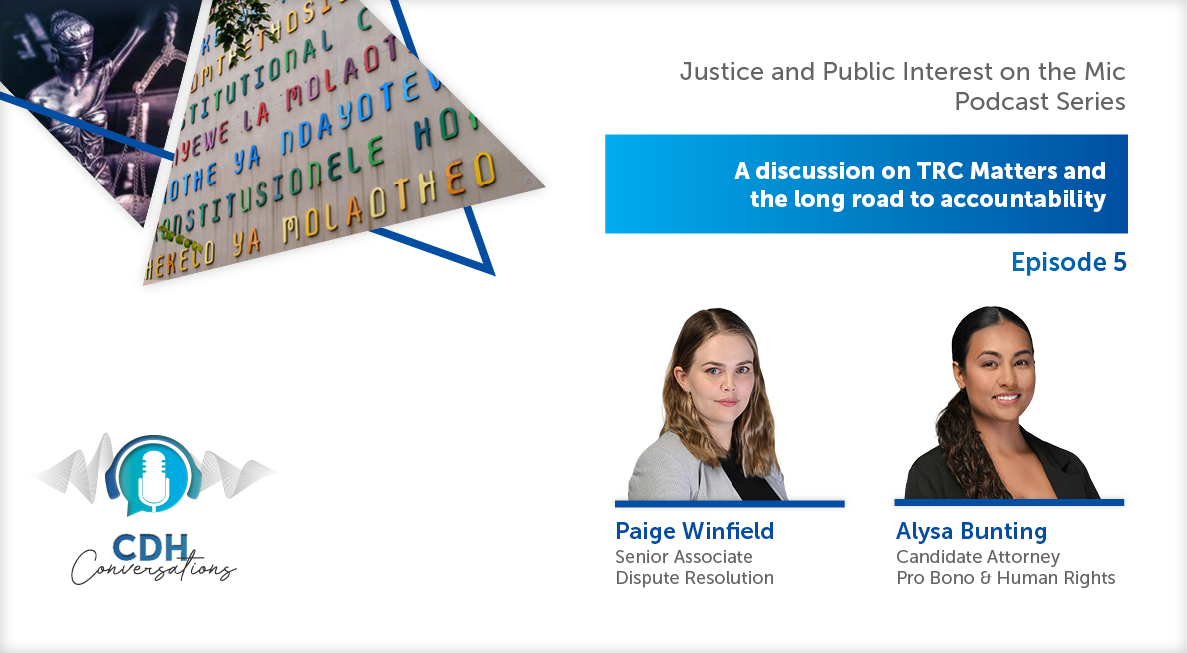Developing legal approach to mental health in the workplace: Compensation Commissioner v Georgia Badenhorst case
At a glance
- The case of Compensation Commissioner v Georgia Badenhorst emphasizes the significance of mental health in the workplace and its impact on workplace safety.
- Georgia Badenhorst suffered from post-traumatic stress disorder (PTSD) after an incident involving a snake at work, leading to psychological conditions and impairment.
- The court recognized the severity of PTSD and other mental disorders, equating them to physical disabilities, and increased Badenhorst's permanent disablement percentage from 20% to 75%, highlighting the debilitating nature of mental health conditions.
In this case, Georgia Badenhorst had a phobia of snakes and suffered from post-traumatic stress disorder (PTSD) after she accidentally grabbed a snake in the storeroom at work when reaching for a docket positioned above her head. As a result of holding the snake she developed numerous psychological conditions that led to her being mildly to moderately impaired. She was awarded 20% permanent disablement by the Compensation Commission, which was subsequently challenged in terms of section 91(5) of the Compensation for Occupational Injuries and Diseases Act (COIDA).
Badenhorst was successful in her challenge and the permanent disablement percentage was consequently changed to 75%. This was then appealed by the Compensation Commissioner.
The expert evidence that was adduced likened the constant anxiety and other disorders – in accordance with Schedule 2 of COIDA – to someone who has lost a leg between the knee and hip or someone who has lost their arm between the elbow and shoulder. The severity of these injuries highlighted the effect of PSTD and other disorders that Badenhorst suffered from and justified the 75% disablement ruling.
This case ultimately highlighted the extent to which PTSD can be as crippling as any physical disorder.
The court considered the fact that the only issue the Compensation Commissioner raised was the disablement percentage and not the rationale of the expert evidence itself. The fact that no evidence was presented on behalf of the Compensation Commissioner to rebut the expert’s recommendation of the 75% disablement meant that there was no reason to question the expert’s assessment of the impairment.
Furthermore, the court found that the mere presentation that the disablement was mental and not physical was insufficient to justify intervention.
Building on the argument, the applicant’s Compensation Commissioner counsel could not rebut evidence that justified the differential treatment of mental disorders to those of physical disorders. The appeal merely sought to change the expert’s determination without adducing any evidence as to why the determination needed to be changed. The court therefore dismissed the appeal with costs.
The importance of mental health and the need for mental well-being in the workplace is highlighted in this case. The courts have clearly recognised that simply because disablement is psychological in nature does not mean it is any less impairing on the normal functioning of an individual.
The information and material published on this website is provided for general purposes only and does not constitute legal advice. We make every effort to ensure that the content is updated regularly and to offer the most current and accurate information. Please consult one of our lawyers on any specific legal problem or matter. We accept no responsibility for any loss or damage, whether direct or consequential, which may arise from reliance on the information contained in these pages. Please refer to our full terms and conditions. Copyright © 2026 Cliffe Dekker Hofmeyr. All rights reserved. For permission to reproduce an article or publication, please contact us cliffedekkerhofmeyr@cdhlegal.com.
Subscribe
We support our clients’ strategic and operational needs by offering innovative, integrated and high quality thought leadership. To stay up to date on the latest legal developments that may potentially impact your business, subscribe to our alerts, seminar and webinar invitations.
Subscribe




